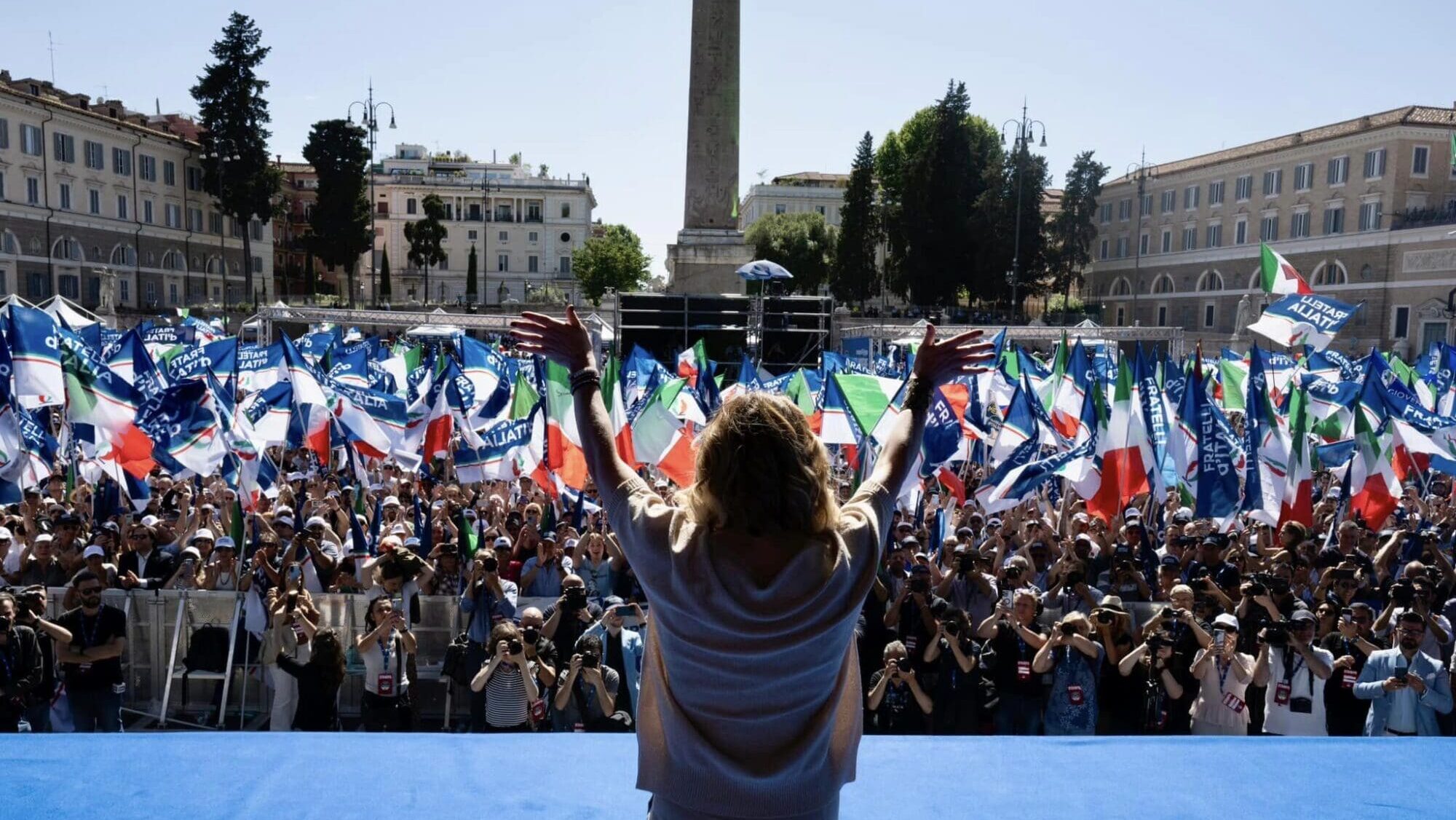
Italian PM Giorgia Meloni
Photo: Giorgia Meloni on Facebook, 1 June 2024
Prime Minister Giorgia Meloni’s ruling Fratelli d’Italia (FdI) party dominated the 2024 European parliamentary election in Italy, a feat that on Sunday no other governing party in the European Union’s largest member states —Germany, France, Spain—could replicate.
The national conservative FdI, with its heavily anti-immigration platform, bagged 28.8% of the votes nationwide. That exceeds the psychological threshold of the party’s result in the 2022 national elections (26%), meaning it is seen as a strong expression of approval of Meloni’s governance.
This result translates to 24 seats out of Italy’s total of 76 in the European Parliament, which is 14 more than what the party received in 2019, and makes FdI the largest delegation in the sovereigntist European Conservative and Reformist (ECR) group.
“They saw us coming, but they were unable to stop us,” Meloni said in her victory speech, paraphrasing the social democrat opposition leader, Elly Schlein.
Schlein’s Partido Democratic (PD) came in second with 24.1%, resulting in 20 seats—four more than five years ago. The third place went to the non-aligned left-wing populist 5-Star Movement (M5S), which also grew by four seats to a total of nine, although its 10% is seen as a defeat compared to the nearly 16% it received in 2022.
The center-right Forza Italia held on to its eight seats with 9.7%, which the party leader and foreign minister Antonio Tajani touted as a great success. “It’s a gift to Silvio Berlusconi, we dedicate these results to him,” Tajani said, referencing the late party leader and ex-prime minister.
On the other hand, Matteo Salvini’s right-wing populist Lega—the 2019 elections’ undisputed winner with 34% and therefore largest member of the Identity and Democracy (ID) group—also replicated its miserable results from 2022 with a meager 9%. With a mere eight Brussels seats this year, Lega lost a staggering 14 seats in total.
Still, no one is thinking about resigning after two such electoral defeats. “Lega was founded 40 years ago, and it has another 40 years ahead of it,” Salvini said with his bottomless optimism.
The sixth and final party that managed to enter the European Parliament was the Green-Left Alliance (AVS), with six seats—one of which goes to Antifa’s Ilaria Salis, the teacher currently held in a Hungarian prison for brutally attacking innocent passers-by in Budapest. Salis was nominated as an MEP by the leftist party only in the hope that her election would grant her legal immunity.
Naturally, Meloni’s victory steals all the spotlight in Italian media. Rightly so, because by becoming the largest force in ECR (and second only to Le Pen’s National Rally among the national conservative parties), Meloni reinforced her position as the most courted woman in EU politics.
The French winner and ID-group leader Marine Le Pen suspended AfD’s membership in the hope that it would give her a chance to team up with Meloni and create a conservative ‘superbloc’ between ECR and ID to rival the center-right EPP and the socialist S&D.
EPP, on the other hand, wants Meloni’s ECR to ditch its right-wing populist allies and cooperate with the centrists instead, in exchange for a more prestigious seat in the Commission and more legitimacy in the Parliament. EPP might even need Meloni to play kingmaker, as the center’s ‘Ursula-coalition’ (EPP, S&D, Renew) might not have the numbers to reelect Ursula von der Leyen as Commission President without FdI’s help.
For now, Meloni simply enjoys the victory and waits for the offers to roll in. The fact that her government was the only one in major European countries whose job was overwhelmingly approved by voters is now her main message. Not for nothing, as she is already preparing for this week’s G7 summit in Apulia, Italy, which she said she will proudly host as “the strongest government of all.”
